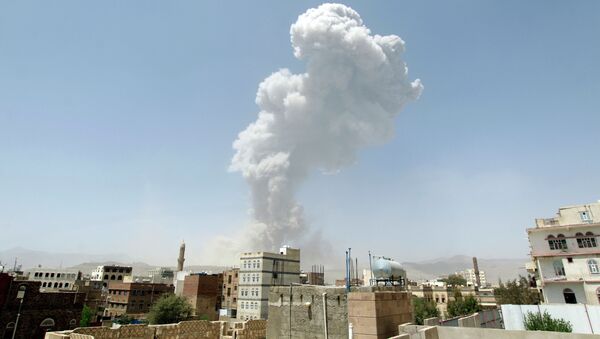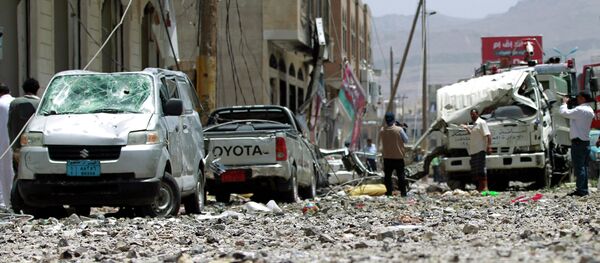“I do not envision, necessarily, their [Saudi Arabia and Iran’s] conflict becoming more outright,” Singh said of the Saudi airstrike near Iran’s Embassy in Yemen.
“In the foreseeable future,” the tensions between Saudi Arabia and Iran will likely remain “contained to Yemen,” and not expand into a broader confrontation, Singh added.
On Monday morning, Iran’s Deputy Foreign Minister for Arab and African affairs, Hossein Amir-Abdollahian reported that Saudi Arabia had dropped “a missile or a rocket” near the Iranian embassy in Yemen’s capital Sanaa.
According to reports, the blast shattered windows in the Embassy, but no diplomatic personnel were injured.
Singh, who also serves as Managing Director of The Washington Institute for Near East Policy think tank, added that Iran and Saudi Arabia are “simply on opposite sides” of the ongoing conflict in Yemen.
Saudi Arabia strongly opposes Iran’s alleged provision of arms to the Houthi rebels in Yemen, while Iranian has been “quite critical” of the military activities of the Saudi-led Arab coalition inside Yemen, Singh noted.
Iranian Foreign Ministry spokesperson Marziyeh Afkham condemned the attack as a “flagrant violation of international conventions.”
Beginning on March 26, 2015, Saudi Arabia formed a multi-national coalition to conduct air strikes against Houthi strongholds in Yemen following the February 2015 Houthi ouster of Yemeni President Abd Rabbuh Mansour Hadi. The conflict has resulted in more than 2,600 deaths.




